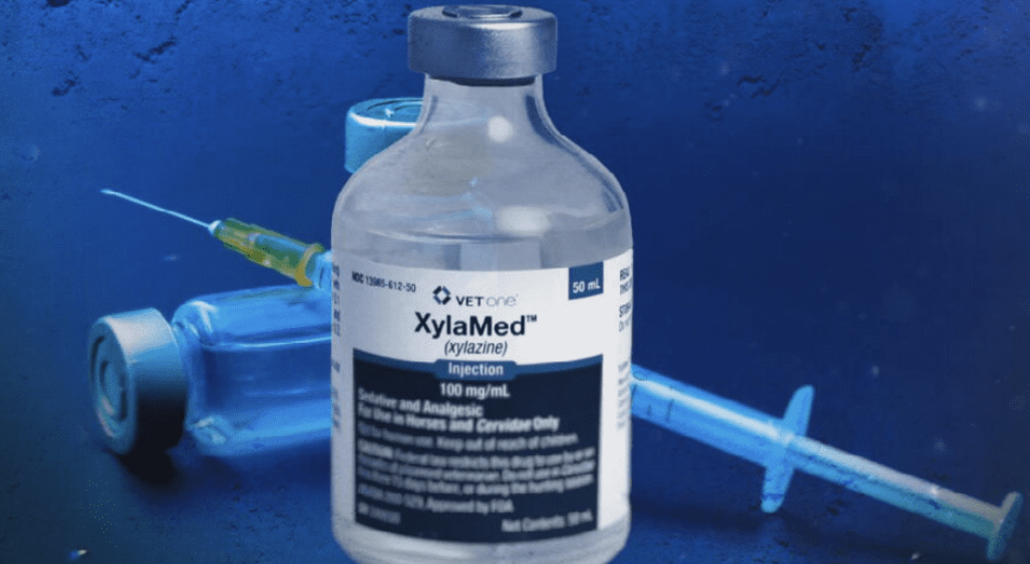Afrin nasal spray offers quick relief from nasal congestion, but when used for more than three consecutive days, it can lead to dependency, a condition where the body begins to rely on the spray to keep nasal passages open. This dependency, often referred to as Afrin addiction, occurs when users experience rebound congestion: a worsening of nasal blockage once the medication wears off.
As this cycle continues, individuals find themselves needing more frequent doses just to breathe comfortably, often accompanied by symptoms such as persistent stuffiness, reduced spray effectiveness, and discomfort when attempting to stop.
Over time, prolonged misuse can cause more serious complications, including chronic nasal inflammation, elevated blood pressure, nasal polyps, and a condition known as rhinitis medicamentosa, marked by constant congestion due to overuse. In the short term, users may also experience headaches, nasal burning, increased congestion, anxiety, and difficulty sleeping.
Treating Afrin addiction typically involves gradually tapering off usage, managing withdrawal symptoms with saline sprays or topical nasal steroids, and in some cases, stopping abruptly under medical guidance. With proper support, most individuals can break the cycle within one to two weeks and restore healthy nasal function.
Key Takeaways
- Afrin nasal spray can lead to dependency and addiction, especially when used for more than three consecutive days, resulting in rebound nasal congestion.
- Symptoms of Afrin dependence include increased nasal congestion, diminished effectiveness of the spray, and withdrawal symptoms when not used, such as headaches and a runny nose.
- Effective treatment methods for Afrin addiction involve gradually reducing usage, supportive treatments for withdrawal, and seeking medical advice for personalized support.
Is Afrin addictive?
Yes, Afrin can be addictive. Afrin nasal spray, like similar nasal decongestant sprays and other decongestant sprays, contains the active ingredient oxymetazoline, which offers quick relief from nasal congestion by constricting blood vessels in the nasal passages. However, the very mechanism that makes Afrin effective can also lead to dependency. Nasal decongestants, including a decongestant nasal spray, can also pose similar risks.
When used for more than three consecutive days, the body begins to adapt, and the nasal passages become less responsive to the medication, leading to a condition known as rebound nasal congestion. This rebound effect compels users to use the nasal spray more frequently to achieve the same relief, creating a cycle of dependency.
Over time, this can develop into a full-blown nasal spray addiction, where individuals feel compelled to use Afrin despite experiencing negative consequences. Therefore, while Afrin is not addictive in the same way as substances like alcohol or narcotics, it can certainly lead to a problematic form of dependence, making the use of Afrin bad for some individuals.
What is Afrin addiction?
Afrin addiction occurs when an individual develops a reliance on the nasal spray oxymetazoline to alleviate nasal congestion, often using it longer than the recommended three days. This reliance can lead to a compulsion to use Afrin nasal spray despite the negative consequences associated with its overuse, including the risk of Afrin overdose. Unlike other forms of drug addiction, Afrin addiction is more about physical reliance on the medication to maintain clear nasal passages.
The active ingredient in Afrin, oxymetazoline nasal spray, constricts the nasal blood vessels in the nasal passages, reducing swelling and congestion. However, prolonged use of Afrin nasal spray can lead to diminished effectiveness, requiring users to apply the decongestant spray more frequently to achieve the same relief. This cycle can cause users to develop a nasal spray addiction, characterized by the need to use Afrin even when it is no longer effective or necessary. Nasal antihistamine sprays can be an alternative for those seeking relief without the risk of dependency.
Recognizing Afrin addiction and understanding how it develops is crucial. The next sections will explore the specifics of Afrin dependence and its symptoms.

How can you get addicted to Afrin dependence?
Dependence on Afrin can develop from prolonged use beyond three consecutive days. The use of Afrin nasal spray provides immediate relief from nasal congestion, but when used for more than a few days in a row, the nasal tissues can become less responsive to the medication. This phenomenon, known as Afrin rebound congestion, occurs when the nasal passages become inflamed and congested after the medication wears off, prompting users to apply the spray repeatedly.
This overuse leads to physical dependence, making users unable to breathe comfortably without the spray, thus perpetuating a cycle of use and withdrawal. The more frequently they use Afrin, the more severe the rebound congestion becomes, making it increasingly difficult to stop using the nasal spray, contributing to worsening congestion.
This dependence can escalate into a full-blown addiction that requires intervention to break the cycle.
What are the symptoms of Afrin dependence?
Afrin dependence refers to a condition in which the nasal passages become reliant on frequent use of Afrin (oxymetazoline) for relief from congestion. Over time, users develop both physical and psychological reliance, making it difficult to stop use without experiencing rebound symptoms. Common symptoms of Afrin dependence include:
- Persistent nasal congestion: Ongoing stuffiness remains even after using Afrin. Nasal passages feel blocked throughout the day, and relief becomes short-lived, often lasting just a few hours.
- Rebound nasal congestion (rhinitis medicamentosa): Congestion returns or worsens as soon as the spray wears off. This rebound effect creates a cycle where the nose feels even more clogged after each dose.
- Increased frequency of use: Users find themselves needing to apply Afrin more often than recommended. What starts as occasional use can escalate to multiple times per day.
- Inability to stop despite adverse effects: Continued use occurs even when side effects appear, such as nosebleeds, burning sensations, or irritation, yet the urge to breathe clearly overrides these warnings.
- Psychological dependence: Users begin to believe they can’t breathe or sleep without the spray. They may carry it everywhere and feel anxious if they don’t have immediate access.
- Withdrawal symptoms: Stopping Afrin can trigger headaches, a runny nose, and worsened congestion. These symptoms often lead users to resume the spray just to relieve the discomfort.
What are the side effects of Afrin overuse?
Afrin overuse can lead to both short-term and long-term side effects, especially when the nasal spray is used for more than the recommended three consecutive days. While the medication provides fast congestion relief, excessive or prolonged use causes physical changes in the nasal passages and may impact cardiovascular health, emotional well-being, and overall nasal function.
Short-term side effects are those that appear soon after repeated or excessive use and typically subside once use is stopped, though they may trigger dependence.
Long-term side effects develop after continuous misuse over extended periods and may require medical treatment or become irreversible.

Short-term side effects of Afrin overuse
- Rebound congestion: Nasal passages become more inflamed once the medication wears off, making symptoms worse than the original congestion.
- Headaches: Pressure and pain in the forehead or sinus region shortly after using the spray.
- Nasal irritation or burning: Discomfort, tingling, or dryness in the nostrils after application.
- Sneezing or runny nose: Uncontrolled sneezing or watery discharge shortly after use, often mistaken for worsening illness.
- Increased nasal congestion:
Users may feel the need to reapply Afrin more often due to diminished relief. - Sleep disturbances: Trouble sleeping caused by nasal rebound, restlessness, or dependence anxiety.
- Anxiety or agitation: Emotional restlessness or panic when the spray is unavailable or fails to work effectively.
- Psychological craving: The belief that one cannot breathe normally without the spray, leading to obsessive use.
Long-term side effects of Afrin overuse
- Rhinitis medicamentosa: Chronic nasal swelling and congestion caused by prolonged use of decongestant sprays, creating a dependency cycle.
- Permanent nasal tissue damage: Ongoing irritation may lead to thinning, inflammation, or breakdown of the nasal lining.
- Nasal polyps: Noncancerous growths in the nasal passages caused by chronic inflammation may potentially require surgery.
- Nosebleeds (epistaxis): Repeated irritation can rupture delicate blood vessels inside the nose.
- Elevated blood pressure (hypertension): Oxymetazoline’s vasoconstrictive effects can raise blood pressure, especially with long-term or frequent use.
- Rapid heart rate (tachycardia): The active ingredient may stimulate the cardiovascular system, increasing heart rate.
- Cardiovascular stress: In rare cases, prolonged use may trigger irregular heartbeat or increased cardiac risk, especially in those with pre-existing heart conditions.
- End-organ damage risk: Chronic vascular constriction may impair blood flow to tissues over time, potentially affecting long-term organ health.
- Worsened anxiety or mood swings: Continuous misuse may lead to nervous system overstimulation and emotional side effects.
- Perceived “high” or stimulant-like sensation: Some users report lightheadedness or a brief euphoric effect, especially with high or repeated doses, though this is not a medically intended outcome.
Why is Afrin dependence bad for you?
Afrin dependence is harmful because it leads to a cycle of rebound congestion, where nasal passages become more inflamed each time the spray wears off, making symptoms worse over time. Prolonged use can damage the delicate nasal tissues, reduce the spray’s effectiveness, and create a psychological reliance where users feel unable to breathe without it. In more serious cases, it may contribute to high blood pressure, heart-related side effects, and chronic nasal conditions like rhinitis medicamentosa or nasal polyps. This makes breaking the dependency difficult and increases the risk of long-term health complications.
What are the treatment methods to stop Afrin addiction?
Overcoming Afrin addiction involves managing both the physical symptoms of withdrawal and the psychological urge to continue using the spray. Because the body becomes dependent on Afrin for nasal airflow, quitting abruptly can feel overwhelming. A structured approach, whether gradual or immediate, can help break the cycle and restore normal nasal function without worsening symptoms. Below are the most effective treatment strategies:
- Gradual dose reduction: Slowly decreasing how often Afrin is used helps the nasal passages adjust without triggering severe rebound congestion. This tapering method minimizes discomfort and allows the body to regain natural function.
- Abrupt discontinuation (cold turkey): Completely stopping Afrin use can be effective for some, though it often leads to an intense short-term increase in symptoms. This method may work best with medical supervision and strong support.
- Saline nasal sprays: Using over-the-counter saline solutions helps keep nasal passages moist and relieves mild congestion during the withdrawal phase without causing dependency.
- Topical nasal steroids: Medications like fluticasone or mometasone reduce inflammation and swelling in the nasal passages, making it easier to breathe without relying on Afrin.
- Steam inhalation or humidifiers: Moist air can soothe irritated nasal tissues and improve airflow naturally, especially during early withdrawal.
- Medical consultation: A healthcare provider can develop a personalized weaning plan, prescribe medications if needed, and monitor progress to prevent complications.
- Allergy management (if relevant): For individuals using Afrin due to allergies, identifying and treating the underlying cause, through antihistamines or allergen avoidance, can reduce the urge to return to the spray.

How long does it take to break Afrin addiction?
Breaking Afrin addiction typically takes 7 to 14 days, depending on the severity of use and individual response to treatment. During this time, the nasal passages begin to heal, and rebound congestion gradually improves. Supportive treatments like saline sprays, topical nasal steroids, and humidifiers can ease symptoms and speed up recovery. While the first few days may be uncomfortable, most individuals experience noticeable relief by the end of the second week with consistent care and patience.
Is Afrin harmful to everyone?
No, Afrin is not harmful to everyone when used correctly and for short durations. It is an effective over-the-counter nasal decongestant when limited to three consecutive days of use. However, prolonged or improper use increases the risk of dependence and side effects, particularly in vulnerable groups.
Children are more sensitive to the effects of Afrin. It is generally not recommended for children under the age of 6, and even older children should use it only under medical supervision. Overuse in children can lead to serious side effects, including increased heart rate, irritability, and rebound congestion, making it unsuitable for unsupervised pediatric use.
For pregnant women, Afrin should be used with caution. While some healthcare providers may allow short-term use during pregnancy, prolonged or excessive use can pose risks due to its systemic absorption and potential effects on blood pressure. Pregnant individuals should consult their healthcare provider before using Afrin to ensure it is safe based on their medical history and pregnancy stage.
















